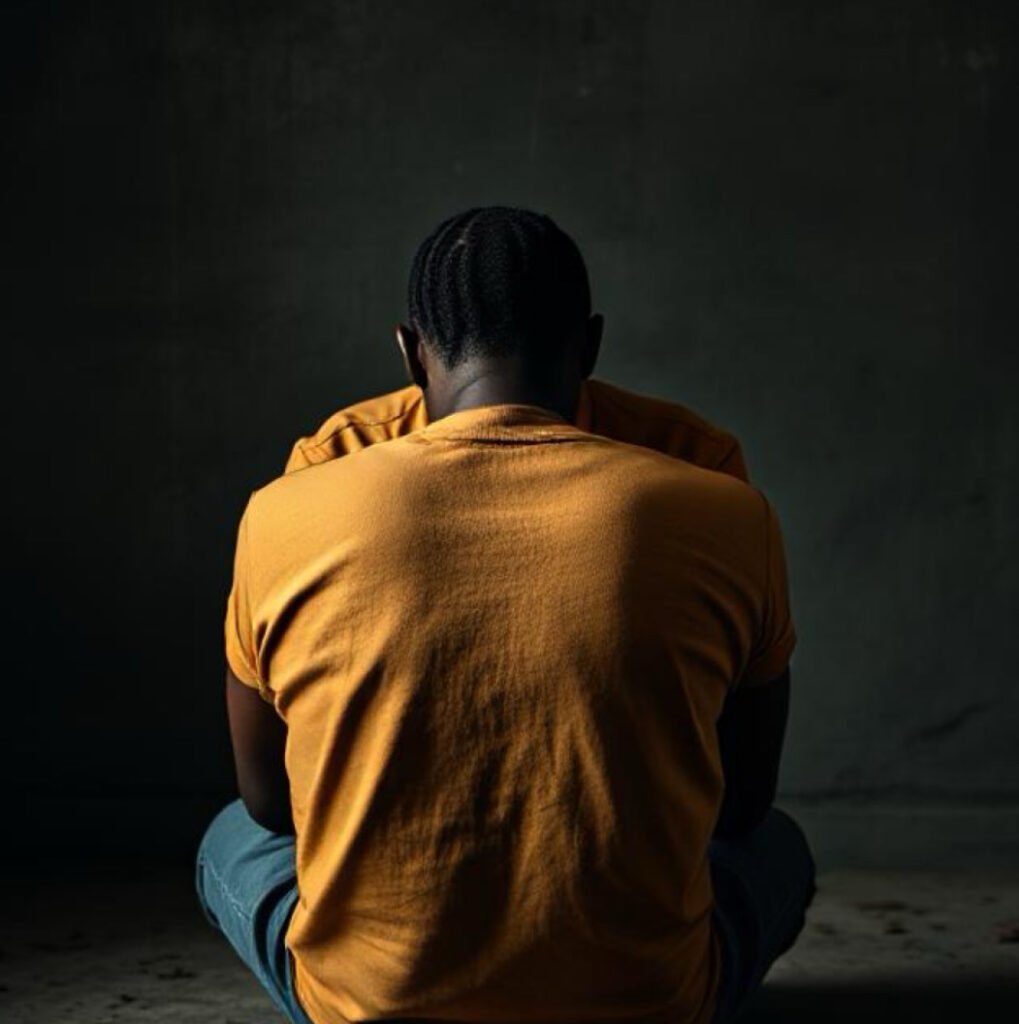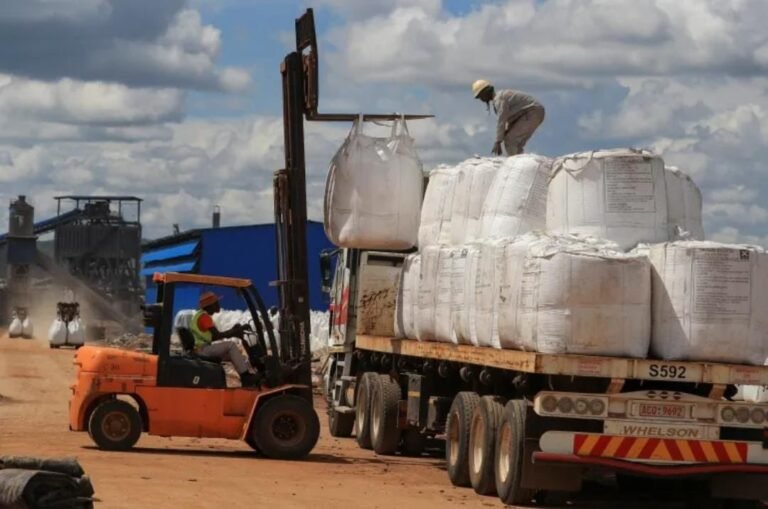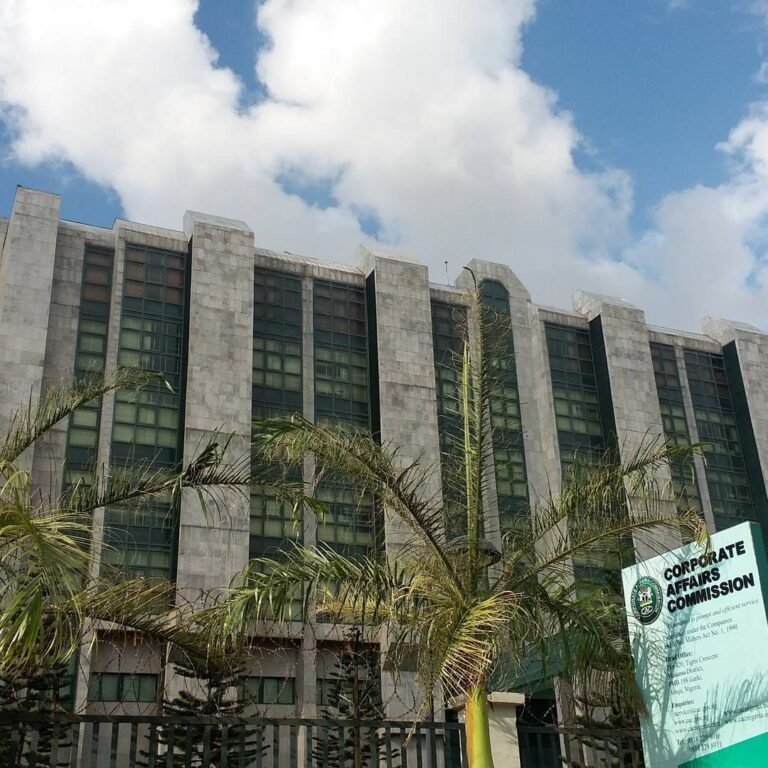Olajide*, 50, sat in his tricycle as he recounted his experience. It has been almost a decade since he quit using drugs; however, the experiences still linger, fresh in his memory.
Olajide was just 10 when he lost his father. He worked at a sawmill factory where he carried planks to feed himself and his mother.
He recalled how it all began: some boys at the sawmill had approached him one day and offered him a wrap of weed. They told him it would give him the strength to carry more planks and make more money. Out of curiosity and the desire to work harder, he took their word for it and gave it a try.
“They brought out the paper and they wrapped it [weed] and lit it for me,” he said.
“When I took my first sip, it knocked me out,” he added.
Later, he found himself unable to work without taking hard drugs. It became a daily routine; he couldn’t escape. But with time, he made a bold decision to quit. He went through recovery and rehabilitation, determined to start afresh.
However, his toughest challenge came after the drugs were gone. Even as he tried to rebuild his life, the stigmatisation followed him. People still saw him as the person he used to be, not the one he was striving to become.
Olajide’s experience mirrors the reality of many people who use drugs. Despite efforts to quit drugs and substance use and rehabilitate, they face stigmatisation in society.
According to the United Nations Office on Drugs and Crime (UNODC), fear of stigmatisation remains one of the top four barriers to drug treatment and support in Nigeria.
Society is not helping matters
“The stigmatisation worsened when I decided to quit using drugs. I became thinner in the first months,” he said.
When he recovered and added weight, people around him said to his face, “Your days are numbered,” recalled Olajide.
“They said adding weight is a symptom drug addicts display before they die,” he said faintly.
The stigmatisation continued even on his happiest day — his wedding day. During his engagement party, a woman who knew him while he was still using drugs openly asked his in-laws publicly why they would allow him to marry their daughter.
Even after several reassurances from his in-laws that he had stopped smoking and turned to a new life, the woman stared in disbelief, insisting he would turn violent on his wife within five years of marriage.
“She said it publicly. On that day, I was supposed to be happy. But it was a mixture of happiness and the other way around,” he recounted.
“I feared that maybe after the engagement, nothing would happen again. Maybe my wife would just run even though she knows I have changed,” he added.
Societal and religious beliefs encourage stigma
The CEO of Knowledge Over Drug Abuse, Olufemi Bashorun, said the Nigerian culture also contributes to worsening drug recovery for people who are often treated “like a curse” to society.
“Nigeria is a country with citizens, rooted in religious and traditional beliefs, and it’s believed that drug use is a moral failure rather than a health condition. That is one of the beliefs that emanate from religious and our tribal beliefs,” he said.
“People [who had used drugs], even after recovery, may still be regarded as bad or irresponsible. They are regarded as bad examples in society that some parents want to teach their children not to be like, and they use them only when they want to make a bad example of people, especially in our religious homes or in a traditional one,” he added.
A study conducted in Lagos on social reintegration of rehabilitated drug users in 2021 reveals that stigmatisation significantly impacts the reintegration of rehabilitated drug users. Stigmas are experienced at the community level, in workplaces, and even among friends and peers. Participants reported being called names and being avoided by others due to their past drug use. This stigmatisation created psychological distress and hindered their reintegration into society.
He beat addiction but couldn’t escape its shadow
Simi*, 30, in 2016, wanted to become a pilot, but when he realised that the school he had applied to ran a drug test. So, he gave up his dream of studying in the US for fear of rejection, even though he had quit using cannabis a few months earlier.
“I was planning on getting admitted into a flight aviation school, so they [the school] said that we have to pass a medical test before they give us admission, so I never followed up on it.”
He later opted out and focused on studying another course instead.
“I’m still trying to get admission into another aviation school to study another course,” he said.
After he quit using drugs, he isolated himself, and he stopped seeing his friends who introduced him to drugs to cope and resist the urge to go back to smoking marijuana. He found solace in watching TV shows to cure his boredom.
“Then, I was feeling a lot of boredom, so I had to start watching programs on TV to help me [cope with boredom].”
Simi’s drug use started right after he left secondary school; his friend introduced him to Marijuana (Cannabis).
Stigmatisation stalls reintegration
Mr Bashorun explained that stigmatisation often results in low self-esteem from ex-drugs and may result in self-isolation even after rehabilitation and reintegration.
According to him, “Social isolation is also one of the effects that comes from stigmatisation after rehabilitation, and of course, that affects mental health and self-esteem.”
“It makes a person exclude themselves from social gatherings, sometimes religious gatherings, academic gatherings, and all of that. They just want to be alone. They isolate themselves because they don’t see themselves as being good enough to be around other people,” he said.
According to a survey by the United Nations Office on Drugs and Crime (UNODC), one in seven persons in Nigeria, aged 15-64 years, had used a drug (other than tobacco and alcohol). Nigeria accounts for 10.6 million cannabis users.
Data Source: United Nations Office on Drugs and Crime (UNODC)
“Apart from the fact that my friends didn’t want to hang around with me, I was feeling so bored because I depended on it [Cannabis] as something I used to have fun. So after I quit, it was so hard,” he said.
Government’s response and efforts to end stigma
In 2021, former president Muhammadu Buhari signed into law the Mental Health Act to provide a comprehensive framework to provide mental health interventions and the highest quality of care while also protecting the rights and dignity of people with mental health needs and drug and substance disorders.
The law aims to eliminate stigma and discrimination in employment, healthcare, housing, and other social services. The law enforces the adoption of global best practices concerning the rights of individuals with mental illnesses, while granting them access to care.
According to a UN report, in 2022, only about 1 in 11 people with drug use disorders received drug treatment globally. However, the Nigerian government accounts for only 30 rehabilitation and counselling facilities across the country to cater for over 200 million people.
In response to the efforts to curb the stigmatisation of people who use drugs in Nigeria, President Tinubu encouraged Nigerians to show sympathy, not stigmatisation, during the 2023 celebration of the United Nations International Day against Drug Abuse and Illicit Trafficking.
“Stigma, both social and structural, which continues to affect people who use drugs and is implicated as one of the most common barriers to access support and services, must be removed, ” President Tinubu said.
Also, the Ministry of Health urged the National Assembly to treat addiction as a health issue, prioritising harm reduction, medical treatment, and protection from arrest when seeking help.
Mr Bashorun suggested engaging religious and traditional leaders, conducting community education campaigns, involving families in recovery education, creating support groups, partnering with media organisations, and fostering dialogues with law enforcement. His recommendations align with UN recommendations on sensitisation on drug use, drug dependence and drug prevention, treatment and care.
A victim determined for change
Olajide, a survivor of drug addiction, has turned his past into a mission to help others. Whenever he comes across a drug user, he makes every effort to talk to them and help them realise the dangers of drug abuse. According to him, it takes “God’s intervention” to overcome it.
“When I see youth taking drugs, I feel bad and I always try to talk them out of it [drug],” Olajide said, repeatedly showing his deep concern about the prevalence of drug abuse among young people in Nigeria.
Simi shares his stories to inspire others about the danger of drug abuse. He works as a freelancer for a company, still hoping to study his dream course.
Organisations like the Knowledge Over Drugs (KODA) also provide support for ex-drug users. The founder shared a story of Samuel, a young man who overcame drug addiction through their Support Don’t Punish campaign.
Samuel began using codeine-based cough syrup and tramadol as a teenager in secondary school due to peer pressure. His use of hard drugs worsened through his early twenties, leading him to drop out of university. His family rejected him due to cultural beliefs about drug use, leaving him homeless and frequently in trouble with the law, causing his community to view him as a “wasted boy.”
After joining KODA’s Support Don’t Punish campaign in Abeokuta, Samuel entered a six-month rehabilitation programme that included medical detox, counselling, spiritual mentoring, and vocational training in mobile phone and laptop repair. The program also provided community integration counselling to help him manage stigma and reintegrate into society.
Samuel’s recovery was successful because he took full responsibility for his actions without making excuses. He rebuilt trust with his family, found employment, and now contributes to his community through his work and volunteer service. He has become an active member of KODA, participating in their outreach campaigns and bringing others who might benefit from similar support.
A similar organisation, the Mental Health Rebuilding and Restoring Initiative (MHHR), founded by Gbenga Adekeye, helps bring together individuals who use drugs to watch documentary screenings that portray the real-life stories of former drug addicts. These documentaries show their lives before addiction and the impact drugs had on them, and their journey to recovery, showing how they overcame addiction through determination and a strong will to stay drug-free.
However, the attitude of Nigerians toward rehabilitated drug users continues to hinder recovery and their efforts to reintegrate into society to live a normal life.
*Names were changed to protect the identity of the survivors.
This story was sponsored by YouthRise Nigeria as part of the Media Fellowship on Ethical Reporting and Substance Use.













